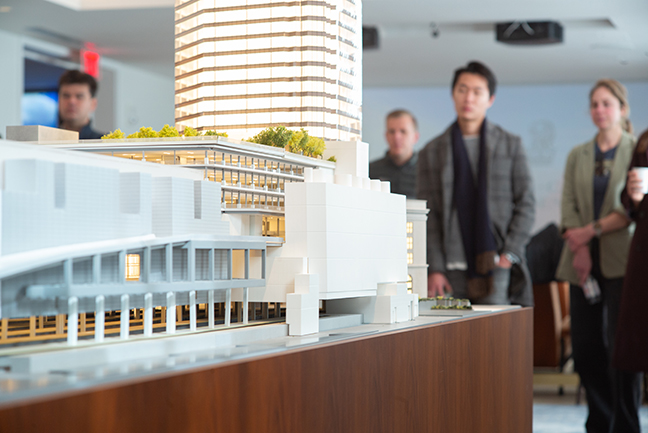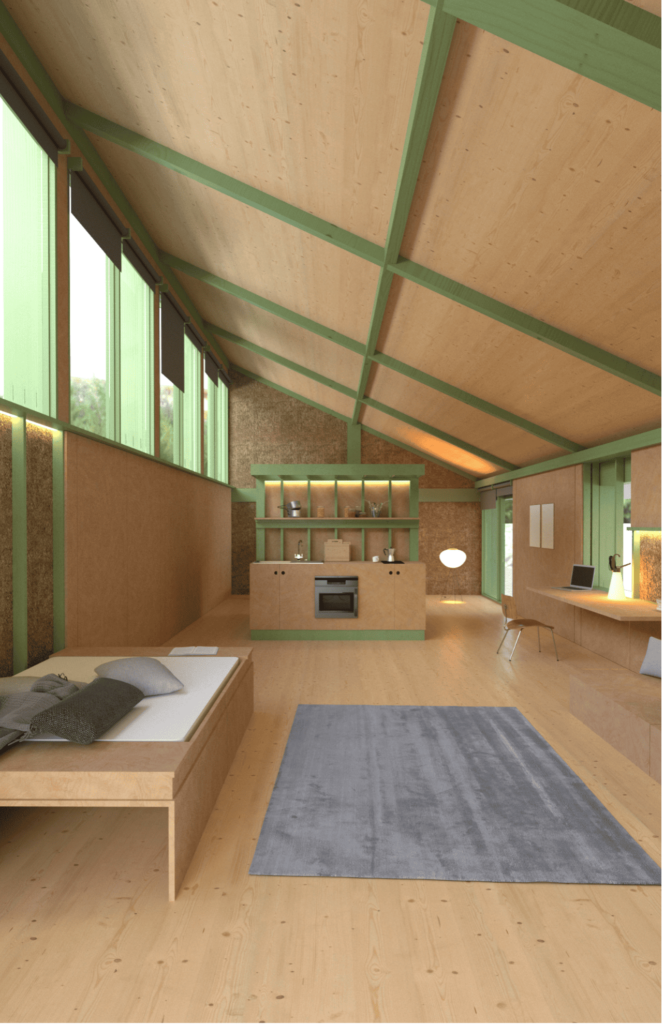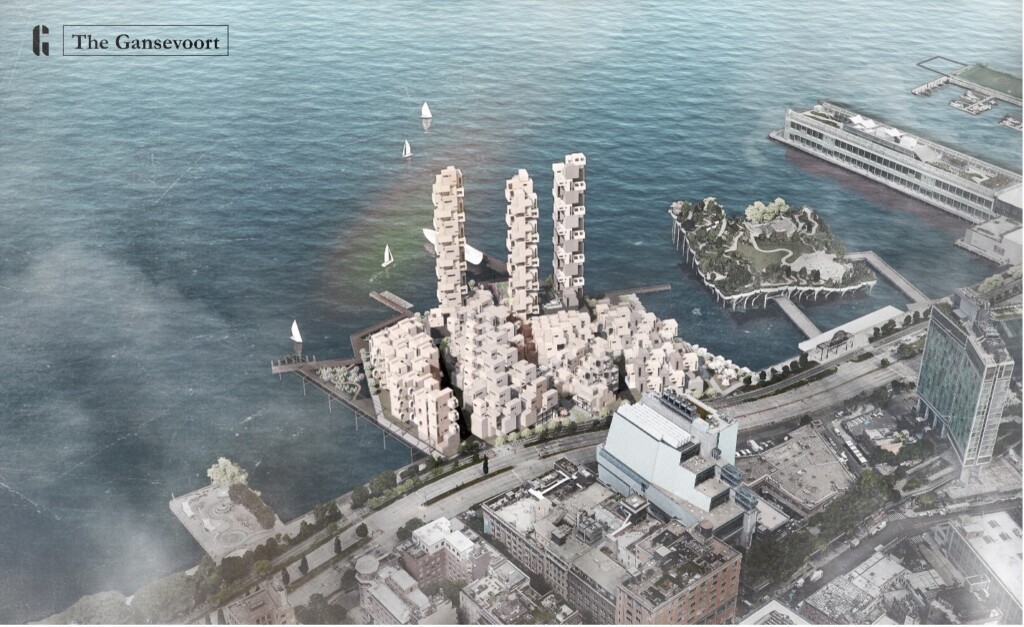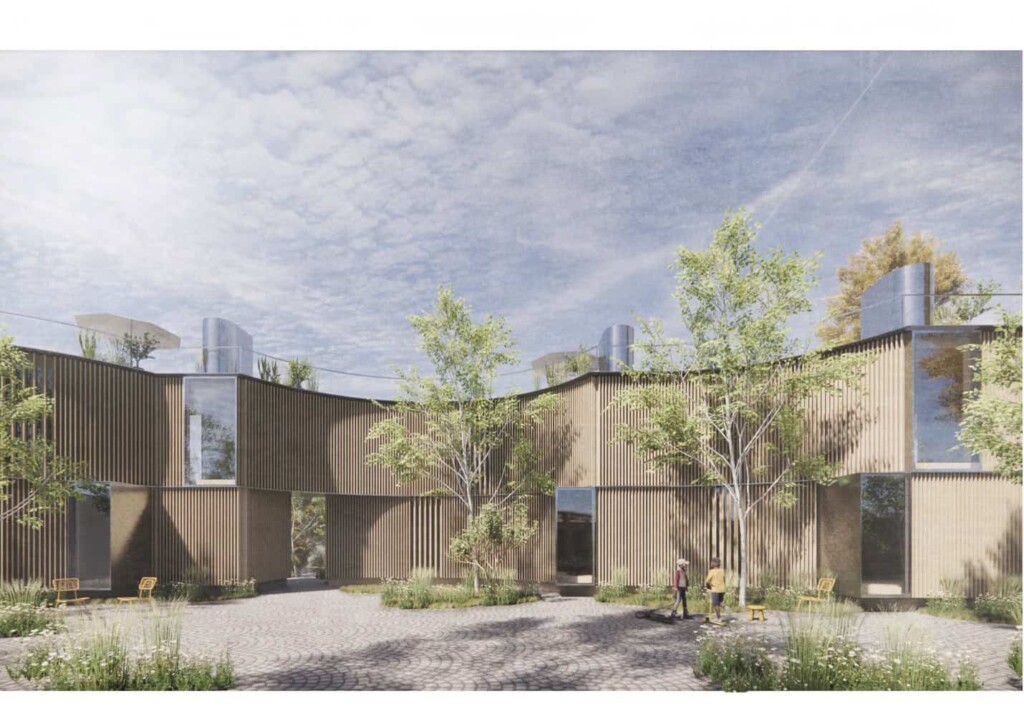Master in Real Estate

- Address
Gund Hall
48 Quincy Street
Suite 312
Cambridge, MA 02138- Phone
- 617-495-6120
For admission inquiries: [email protected]
For financial aid inquiries: [email protected]
For program inquiries: [email protected]- Hours
Monday–Friday
9 a.m.–5 p.m.
If you would like to be entered in our database and receive future mailings, please fill out the Contact Form.
Important Dates
Master in Real Estate
The Master in Real Estate is a 12-month degree that teaches individuals how to acquire or sharpen traditional skills and knowledge required of every real estate professional while simultaneously understanding how well-designed real estate can advance beneficial spatial, social, and environmental outcomes in cities and metropolitan areas worldwide. Through a multidisciplinary curriculum of in-residence required and elective courses and a concluding two-month off-campus practicum within a private or public real estate organization, students learn about finance, development, asset management, design, planning, law, social and environmental considerations, project and construction management, new technologies including AI, politics, public-private partnerships, entrepreneurship, negotiation, leadership, and other skills and subjects essential to the practice of present and future real estate.
The placement of the MRE degree within Harvard’s Graduate School of Design and its Department of Urban Planning and Design reflects the reality that real estate is a physical thing designed by many hands. MRE students significantly benefit from learning within one of the largest design schools in the world, with its 200 or so faculty members and over 1,000 graduate students and international presence. The Department of Urban Planning and Design is particularly well-suited to host the MRE degree program, with leading scholars and practitioners who teach courses about real estate and related subjects such as land use and environmental law, urban design and planning, housing, transportation, international development, healthy cities, and new towns, among many other subjects.
program overview
Harvard is more than the Graduate School of Design. There are 12 additional graduate and professional schools, along with the College, that together weave a rich tapestry of relevant courses and resources. Like all Harvard students, MRE students enjoy cross-registration privileges that enable them to take eligible courses at the Harvard Business School, the Kennedy School, the Law School, the T.H. Chan School of Public Health, the John A. Paulson School of Engineering and Applied Sciences, the College, and other Harvard graduate schools. Students may also cross-register in eligible classes at MIT.
The professional schools are supplemented by centers and institutes that sponsor conferences, guest speakers, research, and fellowships. The Joint Center for Housing Studies , co-administered by the GSD and the Kennedy School, publishes the heavily cited annual “State of the Nation’s Housing” report and enjoys long-standing relationships with some of the world’s largest housing developers, owners, and managers. Working from its specially designed and constructed HouseZero building, the GSD’s own Center for Green Buildings and Cities produces research on how existing buildings can dramatically reduce their energy footprints. Other Harvard centers and initiatives such as The Salata Institute for Climate and Sustainability , the Center for the Environment (part of the Salata Institute), the Taubman Center for State and Local Government , and the Bloomberg Harvard City Leadership Initiative sponsor many public programs with particular relevance to real estate study and practice.
The MRE program provides robust career assistance that starts with networking and continues with connecting. A dedicated MRE faculty member has the task of overseeing career help from faculty, alumni, and friends of the program. Most MRE faculty members are well-known practitioners who enjoy strong relationships with real estate organizations and individuals worldwide. Leading real estate practitioners regularly visit the program, give presentations, and meet privately with students over meals and other informal settings. A student-run Harvard GSD Real Estate Club co-sponsors with its Harvard Business and Law School counterparts an annual spring real estate conference. The Harvard Alumni Real Estate Board and the Harvard Real Estate Alumni Organization tap into Harvard’s vast alumni base of real estate professionals. The Practicum, while not designed to generate job offers, nevertheless does from time to time and furthermore connects students with other industry players.
MRE graduates are prepared to assume a wide variety of positions in private for-profit, private not-for-profit, and public entities engaged in real estate endeavors around the world. Typical employers include developers, asset managers, private equity firms, project and construction managers, community development corporations, family offices, affordable housing developers and managers, governments and quasi-public agencies, real estate advisory and consulting firms, and anchor institutions such as universities and medical institutions. Some MRE graduates choose to set off on their own entrepreneurial path. Others return to the organizations where they worked prior to matriculation, but with opportunities for promotion and new directions. After graduating, the range of employment categories is broad and has included: Acquisitions, Asset Management, Development, Planning and Design, Private Equity/Investment Banking, Real Estate Advisory, and Technology.
The MRE program is a designated STEM program. Accordingly, international students holding F-1 visas may be eligible for a 24-month Optional Practical Training (OPT) extension on top of their initial OPT of 12 months, for a total of 36 months following graduation. Each F-1 student must petition United States Citizenship and Immigration Services to approve the 24-month STEM extension, and Harvard does not represent or warrant that USCIS will grant any individual petition.
In the fall of 2020, Dean Sarah Whiting initiated a process to investigate the possibility of introducing a master’s degree in real estate at the Graduate School of Design. She asked Urban Planning and Design Professor Jerold Kayden, who subsequently became the degree’s Founding Director, to prepare, in consultation with faculty, students, alumni, and scholars and practitioners, a proposal that would describe the degree’s mission, curriculum, faculty, student backgrounds, and other relevant features. That degree proposal was submitted to and approved by the GSD’s voting faculty in the spring of 2021, advanced to the President and Provost of Harvard during the summer, and ultimately approved by the Harvard Corporation in December of 2021. Applications to the program commenced in the fall of 2022. The inaugural class matriculated in the fall of 2023 and graduated in the summer of 2024. The program is now hosting its third cohort of students. Between alumni and current students, the total number of MRE students is around 115.
student Projects
-
-

Infilling with Outbuildings
Nicky Rhodes (MArch I '26), Ian Erickson (MArch I '25), Nathan Lowrey (MRE '26), Vincent Jackow (MArch/MIT) -
![Monterrey’s Urban [River] Forest: Improving Microclimatic Conditions through Public-Private Partnership Vertical Development](https://www.gsd.harvard.edu/wp-content/uploads/2024/07/Monterrey-Urban-River-Forest_PlimptonPoorvuPrize2024_Submission-1_Page_01_2-1024x663.jpg)
Monterrey’s Urban [River] Forest: Improving Microclimatic Conditions through Public-Private Partnership Vertical Development
Miguel Lantigua Inoa (MArch II/MLA AP ’24), Jaime Espinoza (MRE ’25), Chris James (MRE ’25) -

SILVERLINE: A New Model for Data Centers in the Age of AI: Verticalities at the Edge of the Cloud
Ben Parker, Christopher Oh, Ziyang Dong, Jasmine Ibrahim, Thomas Oslund, Catherine Murray -

The Gansevoort: Design for Longevity
Xinxin Cheryl Lin (MArch II ’24), Vivian Cheng (MAUD ’23), Pinyang Paul Chen (MRE ’24/MLAUD ’23), Ben van Berkel, Dana Behrman
